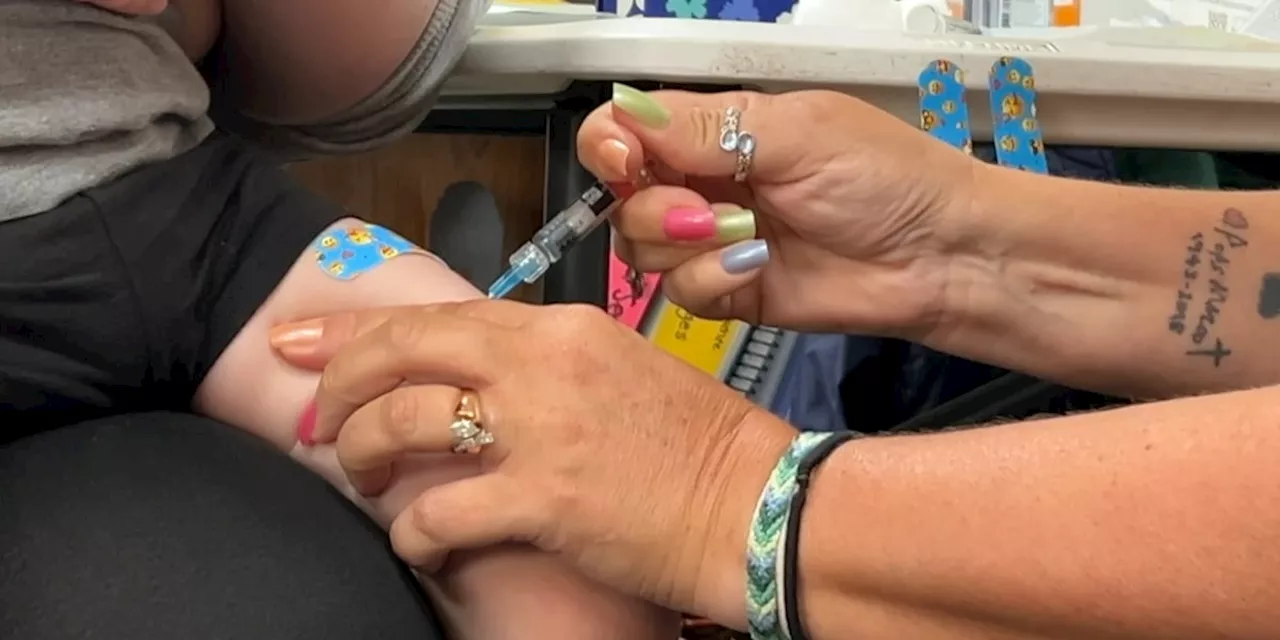
BOSTON — A proposed partnership between **Mass General Brigham** (MGB) and **CVS** is facing significant scrutiny from primary care physicians and state lawmakers. The collaboration aims to enhance access to comprehensive primary care in Massachusetts, but concerns about its implications for patient care are mounting.
Senator **Cindy Friedman**, co-chair of the Health Care Financing Committee, expressed her skepticism, stating, “My first reaction was, this is not what we think about when we think about primary care. I’m kind of blown away.” The partnership intends to provide primary care access for individuals who currently lack it, but critics argue it may dilute the quality of care.
According to documents submitted to the **Health Policy Commission** on June 6, MGB and CVS’s **MinuteClinic** are seeking regulatory approval for a clinical affiliation. Currently, **80 advanced practice providers** (APPs) staff **37 MinuteClinic locations** across Massachusetts. Notably, the proposal does not include plans for additional clinics or staffing increases, raising concerns about the adequacy of care.
The partnership has drawn criticism from primary care professionals, including **Dr. Chris Garofalo**, a physician at Family Medicine Associates of South Attleboro. He stated, “Extending primary care to a business such as CVS through MinuteClinics, which typically only have nurse practitioners in them, would be a little concerning because it would seemingly remove the physician from the equation.” Garofalo emphasized the importance of having a comprehensive care team, saying, “It’s really important to have everybody there who is doing the roles that they are best trained for.”
While nurse practitioners are authorized to practice independently in Massachusetts, concerns remain regarding the quality of care provided at MinuteClinic locations. CVS contends that the clinicians will manage end-to-end care with a focus on preventive health, including regular maintenance visits and chronic condition management. The company stated that services would encompass same-day access, extended hours, and virtual care.
Massachusetts is currently facing a primary care crisis, with many residents lacking a primary care provider. A report from the Health Policy Commission identified provider burnout and access barriers as significant contributors to the sector’s challenges. As a response, a task force is developing recommendations aimed at improving investments and workforce solutions in primary care.
Despite the high stakes, no comprehensive legislative proposal has emerged to tackle the primary care crisis as the current session progresses. Friedman labeled the MGB-CVS proposal as “misleading” and questioned how effective it could be in delivering genuine primary care. She articulated the core of her concern, stating, “We spent all of this energy and research on what makes primary care [what it is], and it’s fundamentally the relationship between a patient and provider.”
The proposal suggests each clinician could handle a patient panel of approximately 1,500 individuals, potentially increasing the statewide capacity by up to **120,000 patients**. Yet, **Dr. Zoe Tseng**, a primary care physician at Brigham and Women’s, expressed doubt about this model. “I think it’s highly doubtful that an APP would be able to carry a [full] patient panel of 1,500 and still feel like they could do it adequately,” she said. Tseng, who has scaled back her patient load due to administrative pressures, emphasized the need for a robust support system in primary care.
Concerns about the adequacy of team-based care also surfaced, particularly regarding the training of clinicians primarily accustomed to urgent care settings. “Who is helping them to train up to do primary care in a way that is leading the core principles of primary care?” Tseng questioned, referring to the foundational principles of primary care.
CVS defended the proposal, asserting that its MinuteClinic clinicians are “board-certified, highly trained medical professionals” capable of addressing gaps in primary care access. The company highlighted the abilities of nurse practitioners to diagnose and treat illnesses, conduct medical tests, and refer patients as necessary.
**Dr. Alan Sager**, a health policy expert at **Boston University**, criticized the proposal as “more primary care smoke and mirrors,” highlighting the need for experienced practitioners rather than episodic care offered in retail settings.
As stakeholders await more details, advocacy groups like Health Care For All are eager for further information regarding the locations of potential new clinics and the implications for healthcare costs. Executive Director **Amy Rosenthal** stated the organization is “interested in learning more” as the Health Policy Commission conducts its analysis.
According to a spokesperson from MGB, the affiliation aims to enhance access statewide, particularly in regions with significant provider shortages, such as **Worcester** and **Bristol counties**, as well as **Western Massachusetts**.
**Dr. Olivia Liao**, President of the Massachusetts Medical Society, emphasized the importance of a physician-led care model. In her statement, she noted, “We believe patients receive the best possible care when they are served by a physician-led team, supported by other health professionals.”
The Health Policy Commission is set to review the proposal, with a decision expected in the fourth quarter of **2025**. Should the affiliation receive approval, MGB patients could access in-network primary care at MinuteClinics, potentially streamlining referrals to MGB specialists and hospitals.
While proponents may see strategic advantages in the collaboration, critics like Dr. **Andrew Cooper Warren** of Brigham and Women’s Faulkner expressed concern that increasing the patient load could exacerbate existing challenges in access and wait times. “If MGB starts adding more people into the specialist system, they’re just going to decrease access for everybody,” Warren warned.
Friedman reiterated her belief that systemic reforms are necessary to improve the primary care landscape in Massachusetts. She advocates for reducing administrative burdens and providing adequate compensation to primary care practices. “Get rid of the administrative burden and pay primary care practices enough that they can stay in business. That simple,” she concluded.
As the proposal moves through the regulatory process, the debate over the future of primary care in Massachusetts continues, with many stakeholders advocating for comprehensive solutions to ensure patient needs are met effectively.






